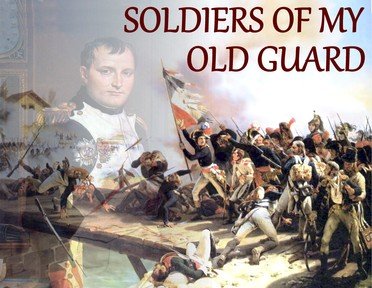
Soldiers of My Old Guard Trivia Quiz
Napoleon Bonaparte's Farewell
This is Napoleon's farewell speech to those soldiers remaining loyal to him after the 1814 fall of France. Though not as well-known as others there is only one way in which it all makes sense.
by Midget40.
Estimated time: 3 mins.